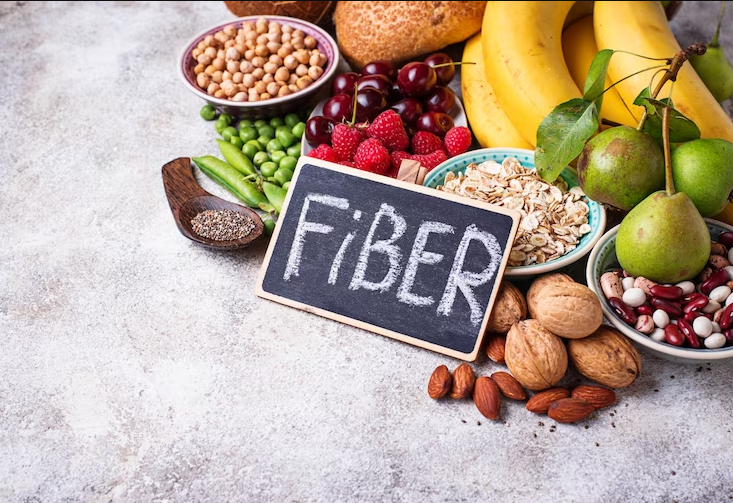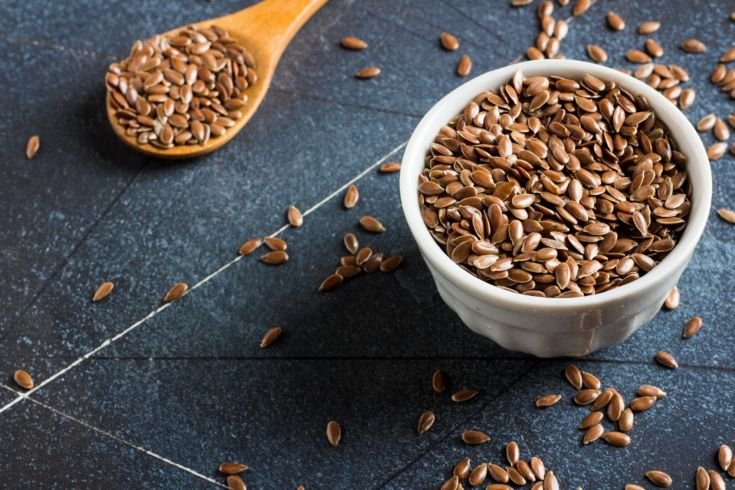
An anal fissure can happen when you pass hard or large stools during a bowel movement. It causes pain, bleeding, or spasms in the muscle ring at the end of the anus. Anal fissures are common in infants, children, and people of all ages. They usually heal on their own within 4 to 6 weeks with proper diet, lifestyle, home remedies, and Ayurvedic medicines for anal fissure.
The most common reasons for anal fissures are constipation, strain during bowel movements, chronic diarrhea, anal intercourse, and childbirth. Other less common causes of fissures include inflammatory bowel disease, anal cancer, HIV, tuberculosis, and syphilis.
An anal fissure might execute the below symptoms:

Constipation is the most common reason for developing anal fissures. It causes hard & dry stools that are often difficult to pass out. To reduce the risk of constipation, it is recommended to consume an adequate amount of fiber from fruits and vegetables in your diet. Aim to consume 20 to 35 grams of fiber daily. High-fiber foods that can help keep stools soft include legumes (such as kidney beans, black beans, lentils, and peas), nuts (such as almonds and pecans), whole grain flour and oatmeal, cereals, brown rice, whole grain pasta, and bread.

To treat anal fissures at home and to get a fast recovery, it is recommended to consume prunes or prune juice due to its high fiber content. Prunes play a critical role in preventing constipation by adding bulk to your stool. Prunes also contain sorbitol, a natural sugar alcohol that acts as a natural laxative, in significant amounts. Prunes have been shown to be more effective in treating anal fissures compared to other laxatives such as psyllium. However, be careful not to consume excessive amounts at once as it can result in side effects such as diarrhea.
You should take consumption of whole fruits as they contain more fiber. Add a variety of vegetables and fruits into your diet, such as berries, grapes, tomatoes, kale, watermelon, cauliflower, Brussels sprouts, green peas, cucumbers, celery, bell peppers, bananas, apples, figs, apricots, dates, asparagus, broccoli, carrots, mushrooms, peas, beans, and citrus fruits rich in vitamin C. Enjoy vegetables in salads, soups, or juices. Papaya is also beneficial as it contains a protein enzyme called Papain which aids in digestion.
Probiotics are beneficial bacteria that promote a healthy digestive tract. Curd, which is rich in probiotics, can help regulate bowel movements and alleviate pain from fissures. Curd helps the digestive system in producing beneficial bacteria and facilitating smooth bowel movements, reducing discomfort.
Including curd with fruits in your diet provides excellent dietary fiber, protein, and gut health benefits. While skimmed milk and other dairy products should be avoided when dealing with fissures, curd is a superior option that can be incorporated into your diet.

It’s important to drink at least 3 to 4 liters of water every day as water is rich in fiber, which can help in anal fissure treatment. Consuming ample liquids adds fluid to your digestive system, making stools softer and easier to pass. Be sure to increase your water intake during hot weather or when you become more physically active.
However, not all drinks are ideal for staying hydrated. Excessive consumption of alcoholic beverages can cause dehydration, and while caffeine-containing beverages may help with bowel movements, excessive caffeine intake can also lead to dehydration.
Olive oil is a natural laxative that can help ease bowel movements to reduce discomfort and pain during anal fissures. A mixture of olive oil, honey, and beeswax can be used as a natural remedy to treat anal fissures at home. Simply combine appropriate amounts of olive oil, honey, and beeswax in a container and melt it in a microwave until the beeswax is completely melted. Allow the mixture to cool and apply it to the affected area. It’s recommended to repeat this process a few times a day for better results.
Coconut oil can also be used as a home remedy for anal fissures treatment. This is because it contains medium-chain triglycerides that can easily penetrate the skin and keep the affected area lubricated. Simply apply coconut oil on the anal sphincter muscle a few times a day to promote healing and relieve the discomfort caused by anal fissures.
Aloe vera can be beneficial in relieving symptoms and promoting the healing of anal fissures due to its pain-relieving properties. Clinical studies have shown that applying a topical cream containing aloe vera juice can help heal chronic anal fissures. To use aloe vera, you can pick a fresh leaf from an aloe vera plant, cut it open, and scoop out the gel using a spoon. Apply the aloe vera gel on the affected area a few times a day for improved results.
A sitz bath is considered one of the top home remedies for anal fissures treatment. It involves soaking your anal area in plain warm water for 10 to 15 minutes to reduce pain, especially after bowel movements. You can repeat this activity 2 to 3 times a day for quick relief from piles. Sitz bath kits are readily available and can easily fit in any bathroom. They are lightweight, stable, and easy to clean. You can also add Epsom salts to the warm water for added healing benefits. Sitz baths can be taken in a bathtub or by using plastic sitz baths that fit on top of the toilet. This can help reduce pain, bleeding, inflammation, and itching. After a warm sitz bath, gently pat the area dry with a cotton cloth, avoiding harsh rubbing.
Apple cider vinegar is believed to have potential benefits for constipation due to its content of water-soluble fiber called pectin, which can help improve digestion and promote bowel movements. To use apple cider vinegar for constipation relief, you can mix 1-2 tablespoons of unfiltered apple cider vinegar with a tablespoon of honey in a glass of water. Drink this mixture twice a day to potentially alleviate constipation and reduce the risk of anal fissures caused by straining during bowel movements. However, it’s important to note that individual results may vary, and it’s always best to consult with a healthcare professional before starting any new dietary regimen, especially if you have any underlying health conditions.

Flax seeds can act as a laxative and reduce strain during bowel movements, potentially helping with constipation that can cause anal fissures. They are also high in fiber and omega-3 fatty acids, which support healthy bowel function. To use flax seeds for constipation relief, mix a tablespoon of flax seed powder in water and have it before bedtime. It’s important to note that individual results may vary, and it’s best to consult with a healthcare professional before making any changes to your diet or lifestyle, especially if you have underlying health conditions.
Lack of physical activity is a common cause of constipation leading to anal fissures. Aim to exercise for at least 30 minutes most days to keep your digestive system active and healthy. Try to achieve a total of 150 minutes or more of exercise per week.
Listen to your body’s signals and respond promptly when it’s time for a bowel movement. Delaying or ignoring the urge can weaken the signals over time. Holding in stool for too long can result in dry and hard stools, making them difficult to pass. Maintain healthy bowel habits and hygiene by avoiding straining during bowel movements, keeping the anal area clean and dry, and using soft, dry, scent-free toilet wipes or cotton towels to gently pat dry the area. Avoid rubbing harshly. Limit your time sitting on the toilet and try to adopt a squatting position for more natural bowel movements.
In conclusion, anal fissures can be painful and discomforting, but there are several natural remedies that may help to treat anal fissures at home. These include the use of olive oil, honey, and beeswax mixture, coconut oil, aloe vera gel, sitz baths, apple cider vinegar, flax seeds, and maintaining healthy bowel habits through regular exercise, timely response to bowel movements, and proper hygiene.
It’s important to consult with a healthcare professional before trying any new remedies, especially if you have underlying health conditions. With proper care and attention to bowel health, anal fissures can be managed effectively.
Get 20% off on your first order when you sign up for our Email Newsletter.
Disclaimer: The information provided by us on Pilesmedicine.in is for general informational purposes only and is not a substitute for professional advice. All information on the Site is provided in good faith, however we make no representation or guarantee of any kind, express or implied, regarding the accuracy, adequacy, validity, reliability, availability or completeness of any information on the Site. UNDER NO CIRCUMSTANCE SHALL WE HAVE ANY LIABILITY TO YOU FOR ANY LOSS OR DAMAGE OF ANY KIND INCURRED AS A RESULT OF THE USE OF THE SITE OR RELIANCE ON ANY INFORMATION PROVIDED ON THE SITE. YOUR USE OF THE SITE AND YOUR RELIANCE ON ANY INFORMATION ON THE SITE IS SOLELY AT YOUR OWN RISK. Accordingly, before taking any actions based upon such information, we encourage you to consult with the appropriate professionals.
PilesMedicine.in ©2025. All Rights Reserved, SHRI VINAYKA WELLNESS & HEALTHCARE (OPC)PRIVATE LIMITED